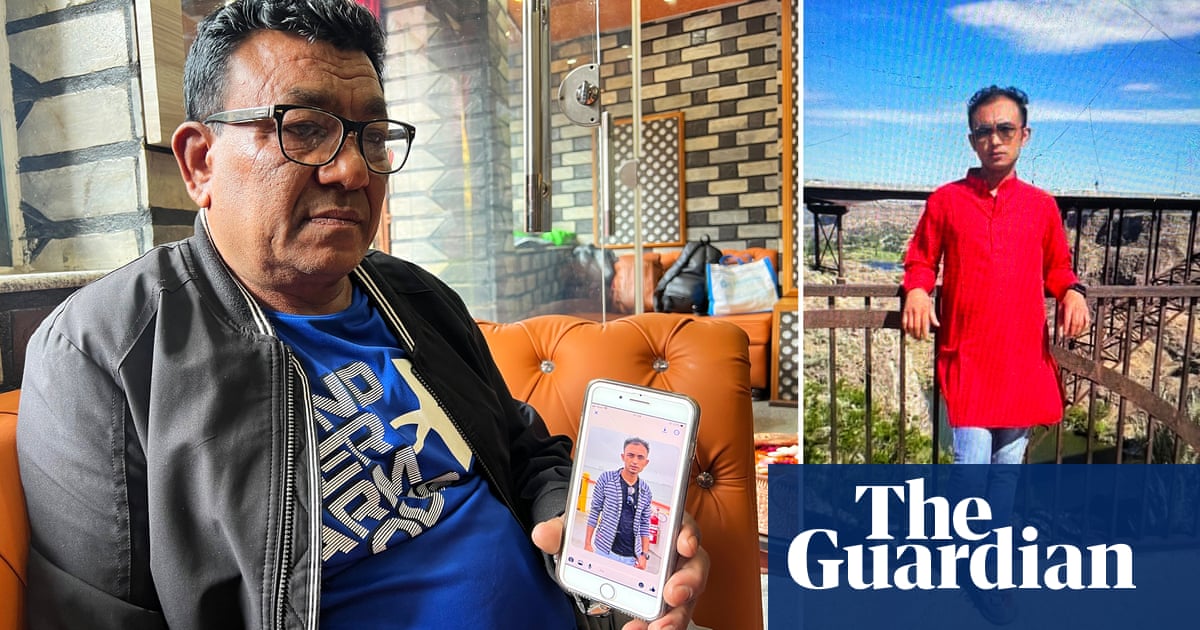When Narayan Kumar Subedi received a call from his daughter in the United States three weeks ago, he expected to hear news of his two children’s life abroad, perhaps even plans for a long-awaited reunion. Instead, he was told his 36-year-old son Ashish, a Bhutanese refugee resettled in the US, was being deported.
Ashish had been caught in a domestic dispute that led to police involvement. After several days in detention without proper legal support, he was caught up inDonald Trump’s migration crackdownand deported to Bhutan.
But what followed was a surreal sequence of events that left Ashish and nine other Bhutanese refugees stateless: abandoned by the country they once fled, expelled by the one they tried to call home, and detained by the one they sought refuge in.
Narayan was one of 100,000 Nepali-speaking Bhutanese whofled the country in the early 1990sto escape persecution. Many saw emigration as the only hope for a future. Narayan’s children were granted refugee status in the US, but Narayan himself was disqualified over paperwork errors and he still lives in the Beldangi refugee camp in eastern Nepal.
Now, decades later, his son is back – but not welcomed by Bhutan, nor recognized inNepal.
According to Nepal’s director general of immigration, Govinda Prasad Rijal, four of the 10 deported Bhutanese refugees, including Ashish, were taken into custody for entering Nepal illegally via India.
“They were taken from the refugee camp on 28 March because they had entered Nepal without valid visas,” he said. “Since the matter is still under investigation, we have not decided whether they will be deported to India, returned to Bhutan, or what other action might be taken.”
However, after the family filed a habeas corpus petition in Nepal’s supreme court, the court issued an order to produce them before the court on 24 April and not to deport them until then.
Ashish and nine others were first flown from the US to Delhi, where they were reportedly treated well and even put up in a hotel during transit. The following day, they were flown to Paro international airport in Bhutan.
There, according to Ashish’s father, the Bhutanese government welcomed them courteously but didn’t allow them to stay long. After routine questioning, the group was handed 30,000 Indian rupees each and transported to the Indian border town of Phuentsholing. Within 24 hours, they were out of Bhutan again.
“The fact that Bhutan accepted them from the United States shows an acknowledgment of their citizenship. But deporting them to the Indian border within a day reveals a deceptive character,” said Dr Gopal Krishna Shiwakoti, former chair of the Asia Pacific Rights Network. “It’s strange in itself to send them to a country that had earlier refused to recognize them as its citizens, leading the US to resettle them in a third country.”
From Phuentsholing, the group made its way to Nepal through Indian intermediaries. Later, Ashish and his friends Santosh Darji, Roshan Tamang and Ashok Gurung were detained by Nepalese authorities.
“I was shocked,” Narayan says. “To be treated like a criminal in your own refugee camp, after all these years … it breaks you.”
Nepal has no comprehensive legal framework addressing refugee protection or statelessness. That leaves people like Ashish in legal limbo – neither welcomed back by Bhutan nor recognized as refugees in Nepal.
Tulsi Bhattarai, the immigration officer leading the investigation, confirmed that four of the 10 individuals are in custody. “Their statements confirm they entered Nepal from Bhutan via India,” he said. “We’ve collected documents from their time in the refugee camps and submitted a full report.”
Activists argue the situation echoes the early days of the 1990s refugee crisis.
“We’ve come full circle,” says Shiwakoti. “This is a 360-degree repeat of history. Nepal must urgently initiate diplomatic engagement with Bhutan to resolve this issue.”
From 2007 to 2018, more than 113,000 Bhutanese refugees were resettled in third countries, mainly the US, according to the UNHCR. But around 6,500 still remain in camps in Nepal, caught in a state of indefinite limbo. Now, for deportees like Ashish, a new crisis is unfolding.
International rights groups are raising alarm. In a joint statement, Bhutanese political and civil society leaders have appealed to the United Nations, the US and Indian embassies, and the government of Nepal for intervention. Their core demand is that the 10 deported individuals be recognized as Bhutanese nationals and protected under international refugee law.
“These people are not just numbers. They have histories, identities, and rights,” says Ram Karki, coordinator of the Global Campaign for the Release of Political Prisoners in Bhutan (GCRPPB).
Back in Beldangi, Narayan waits. His son remains in custody, with uncertain future.
“I just want my son to be free,” he adds. “We lost our country once. Must we lose it again?”
